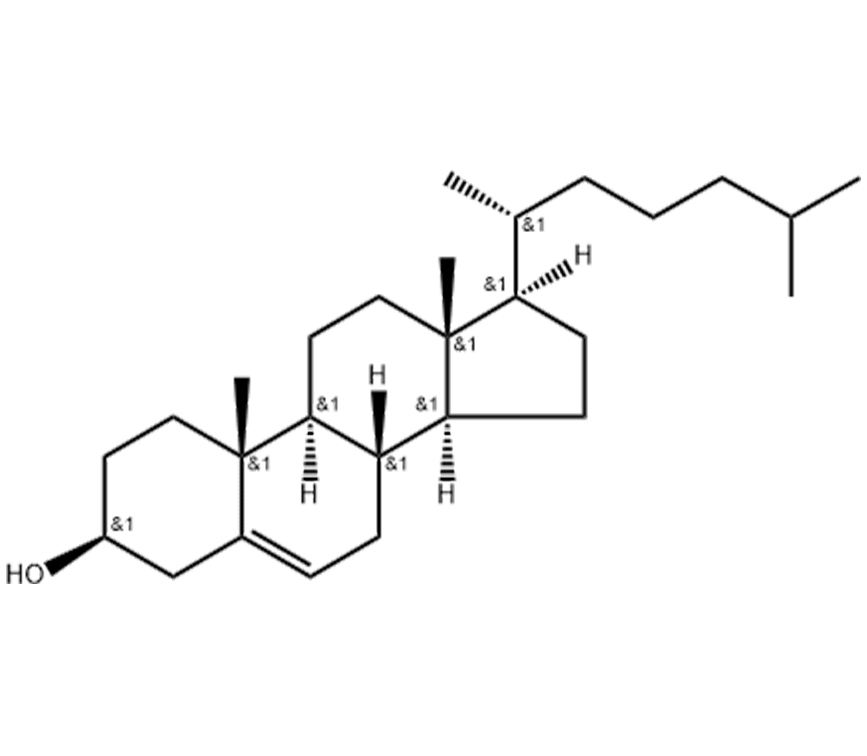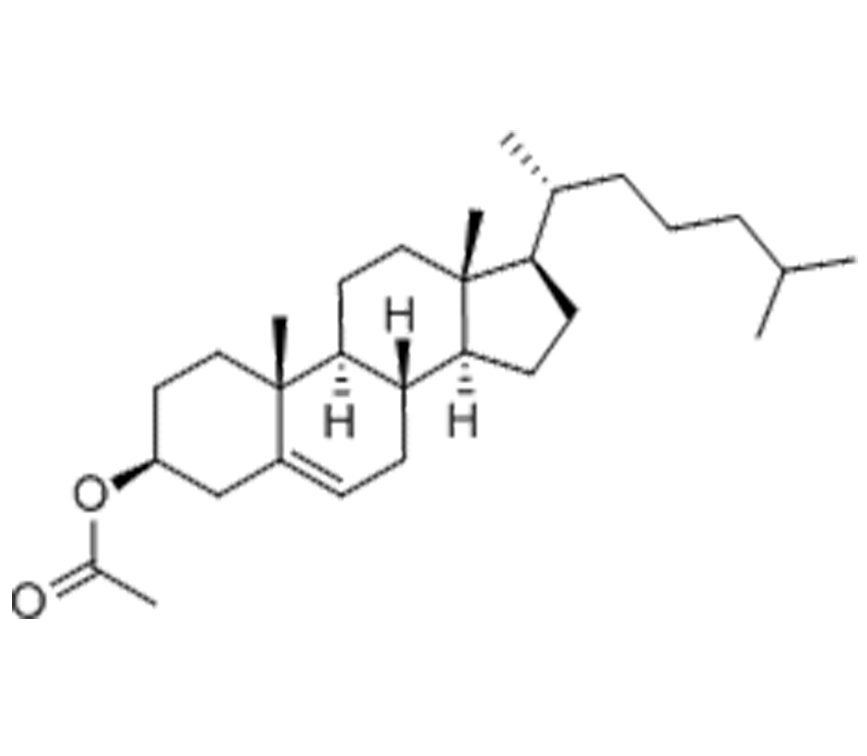Was ist die Anwendung von Cholesterin auf pflanzlicher Basis?
Cholesterin aus Pflanzen: Der branchenübergreifende Anwendungswert natürlicher Wirkstoffe
Cholesterin aus Pflanzen, hauptsächlich in Form von Pflanzensterinen, ist ein natürlicher Wirkstoff, der aus Pflanzen gewonnen wird. Aufgrund seiner hohen Sicherheit und seiner bedeutenden biologischen Aktivität wird es in verschiedenen Bereichen eingesetzt und ist ein wichtiges Bindeglied zwischen natürlichen Ressourcen und industrieller Innovation.
I. Pharmazeutische Industrie: Hauptrohstoffe und Zwischenprodukte
Phytosterine sind wichtige Rohstoffe für die pharmazeutische Industrie und können direkt für die Entwicklung von cholesterinsenkenden Medikamenten und ergänzenden Behandlungen von Herz-Kreislauf-Erkrankungen verwendet werden. Sie dienen auch als hochwirksame Zwischenprodukte bei der Synthese von pharmazeutischen Wirkstoffen wie Steroidhormonen und Antibiotika und bilden eine stabile materielle Grundlage für die Arzneimittelentwicklung.
II. Industrie für Gesundheitsprodukte und Ernährung: Ein natürlicher Gesundheitsförderer
Dank seiner Haupteigenschaft, die Regulierung des menschlichen Cholesterinstoffwechsels zu unterstützen, ist pflanzliches Cholesterin zu einem wichtigen Bestandteil funktioneller Gesundheitsprodukte geworden, die bei der Herstellung von Nahrungsergänzungsmitteln für die Herz-Kreislauf-Gesundheit und immunmodulatorischen Präparaten häufig verwendet werden. Sein natürlicher Ursprung entspricht auch der Nachfrage der modernen Verbraucher nach "natürlichem Wohlbefinden", und seine Marktakzeptanz nimmt weiter zu.
III. Lebensmittelindustrie: Ein wichtiger Zusatzstoff für funktionelle Verbesserungen
In der Lebensmittelindustrie werden Pflanzensterine häufig als funktionelle Zusatzstoffe verwendet, um die gesundheitlichen Eigenschaften von Lebensmitteln zu verbessern. So werden sie beispielsweise Produkten wie Margarine, Getränken mit pflanzlichem Eiweiß und Joghurt zugesetzt und helfen den Verbrauchern, den Cholesterinspiegel durch ihre tägliche Ernährung zu regulieren. Außerdem sind sie aufgrund ihrer verbesserten Textur und Stabilität ein nützlicher Zusatzstoff bei der Lebensmittelverarbeitung.
IV. Kosmetika und Körperpflege: Eine bevorzugte Wahl für natürliche Haut- und Haarpflege
Die feuchtigkeitsspendenden und reparierenden Eigenschaften von Pflanzensterolen machen sie zu einem beliebten Inhaltsstoff in der Kosmetikindustrie. In Cremes und Lotionen können sie die Hautbarriere stärken und Trockenheit und Empfindlichkeit lindern. In Shampoos und Pflegespülungen können sie die Gesundheit der Haarkutikula verbessern und Spliss reduzieren, was sie zu einem Hauptbestandteil natürlicher Haut- und Haarpflegeprodukte macht.
V. Wissenschaftliche Forschung und Biologie: Ein Eckpfeiler der Forschung und Normung
Als Referenzmaterial in der biochemischen Forschung bietet pflanzliches Cholesterin eine präzise Referenz für die Untersuchung der biologischen Aktivität und der Stoffwechselmechanismen von Sterolen. Darüber hinaus dient es als entscheidendes Forschungsinstrument für die Entdeckung der Gesetze der Biowissenschaften, auch bei Themen wie Cholesterin-Stoffwechselwege und pflanzliche Sterinumwandlung.
VI. Industrie und Landwirtschaft: Neue Wege für grüne Innovation
Im Industriesektor: Seine Derivate können als umweltfreundliche Tenside bei der Herstellung von reizarmen Reinigungsmitteln und biologisch abbaubaren Waschmitteln verwendet werden, was dem Trend zur "grünen Chemie" entgegenkommt.
Im Agrarsektor: Einige Pflanzensterinderivate werden als Pflanzenschutzmittel entwickelt, die die Widerstandsfähigkeit von Pflanzen gegen Krankheiten erhöhen und das Wachstum fördern und damit neue Lösungen für die grüne Landwirtschaft bieten.
Aufgrund seiner natürlichen Eigenschaften und seiner Anpassungsfähigkeit an verschiedene Sektoren treibt pflanzliches Cholesterin weiterhin Innovationen in der Pharma-, Gesundheits- und Lebensmittelindustrie voran und wird zu einer lebenswichtigen natürlichen Ressource mit sozialem Wert und wirtschaftlichem Potenzial.









